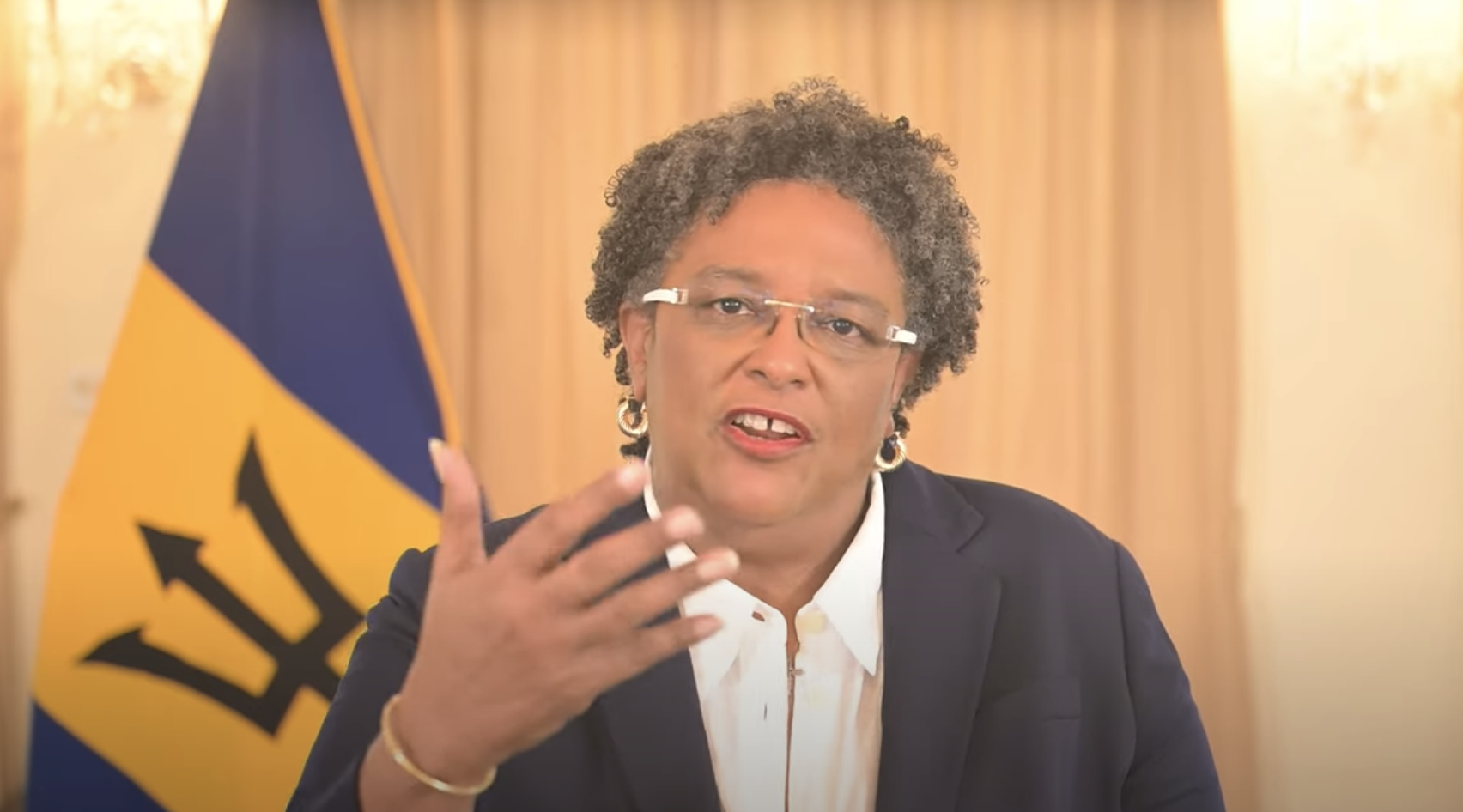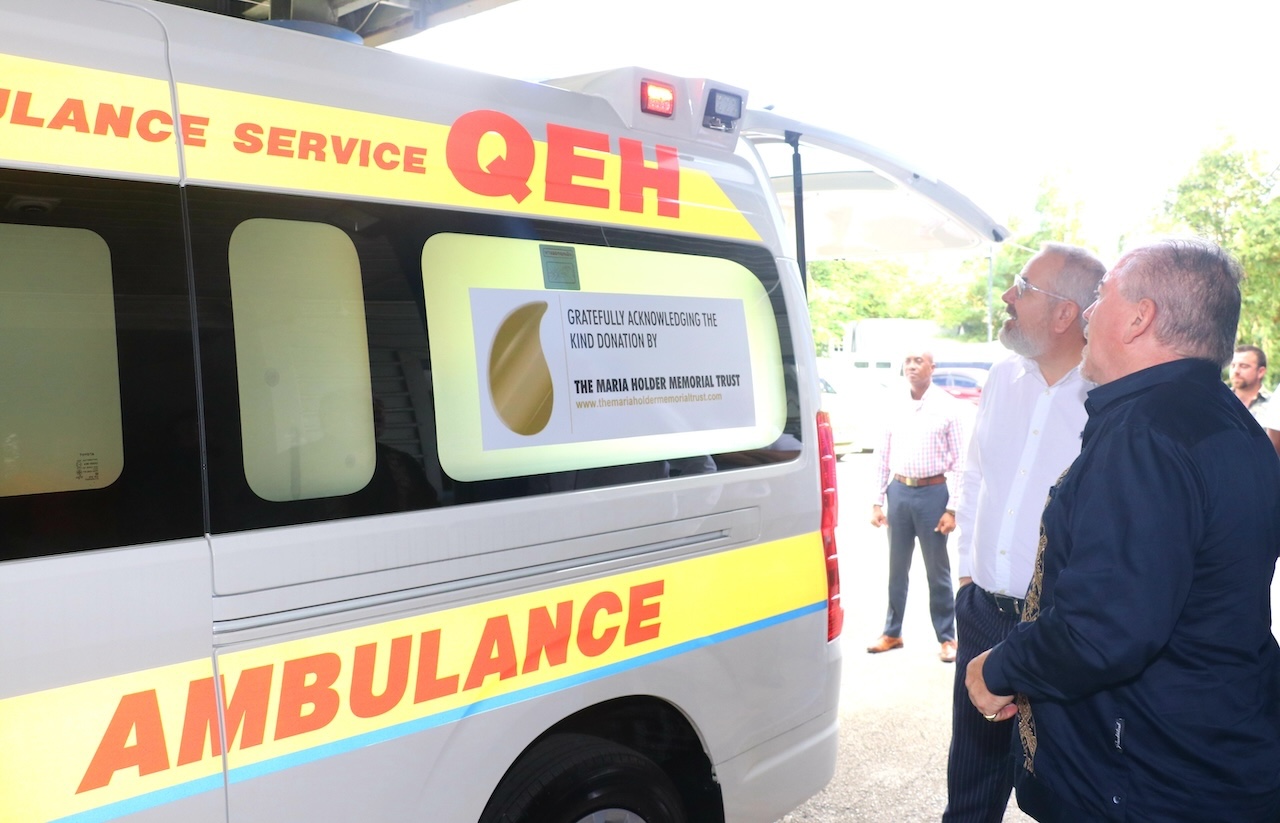Barbados Prime Minister Mia Mottley Addresses Violent Crime Surge: A Call for Concrete Policies and Tangible Results

July 17, 2024
Prime Minister Mia Mottley's address on Barbados' rising violent crime rates lacked concrete policy solutions to address root causes. Calls for unity and personal responsibility must be backed by tangible actions.
Prime Minister Mia Mottley’s address on Barbados’ violent crime surge was well-intentioned, impassioned and sincere. But it fell woefully short of the decisive action our nation expects and so desperately needs.
We appreciate the Prime Minister’s call for unity, reflection and personal responsibility. But we must respectfully urge her to focus on concrete policies and tangible results rather than symbolic gestures.
The stark reality facing our island cannot be overstated. With homicides nearly doubling compared to last year, too many Barbadians are living in fear. Too many communities are crying out for more than just a five-minute pause or a call to “STEP up”. A cogent, comprehensive, actionable plan to address the root causes of violence and restore safety to our streets is what we expect from our political leaders. Our premier ought not to assume the role of national pastor. She is the head of our government, not our republic.
She was indeed right to identify issues such as gang activity, drug abuse, and the outsized impact of social media on our youth, but we were disappointed that a primetime address in the middle of the most watched programme on state television notably lacked any new policy initiatives or specific measures to combat these problems. Vague appeals to moral and religious education, while important, are not enough to stem the tide of violence engulfing our nation.
The PM may well think that she has addressed these matters before. But a savvy speaker such as her would do well to use the opportunity to tell the nation, for instance, of the efforts to increase the efficiency of our criminal justice system. The chief justice has made this a priority. Judges have been appointed. What more needs to be done to reduce remand periods which insidiously condemn both the innocent and guilty to the condemnatory period of imprisonment?
She could have told us about specific programmes to address youth unemployment and disengagement – beyond skills training and youth programmes. This is particularly concerning given the recent criticisms by the Barbados Youth Development Council that this administration, too, like its predecessors, has failed to deliver a national youth policy.
The prime minister could have reported on efforts to develop community policing and improve police-community relations, particularly given the limitations on human, physical and financial resources. When, for example, new police stations will be built? How relevant are the six police districts that have not changed since the early post-emancipation period nearly 200 years ago to today’s diverse republic with significant urbanisation?
What news, Prime Minister, of comprehensive drug prevention and rehabilitation programmes? Where is the investment in mental health services, particularly for youth affected by COVID-19 restrictions? What role can the state play in helping people cope with the vagaries of life? Where are the anger management programmes in schools?
Monday’s speech could have done much to diminish doubt about the government’s commitment to making Barbadians safer. Sadly, an important opportunity has been missed.
The power of the prime ministerial bully pulpit is immense. When the head of Cabinet, the first among equals, speaks, we should all indeed listen. But we must caution against the dangers of overexposure through voluminous speeches that, for all their homespun aphorisms and colourful phrases, risk turning off the minds of a busy public. In these critical times, concise, focused communication on specific actions and policies would be far more effective in maintaining public engagement and support. We thought this lesson had been learned during the COVID-19 pandemic.
While public support and community involvement are indeed crucial, as the Prime Minister rightly points out, they must be coupled with strong leadership and concrete action from the government. We cannot expect citizens to “step up” if they do not see their leaders doing the same with substantive policies and resources. This is a nation of intelligent, educated, pragmatic people. The Prime Minister should heed her own dictum – talk to us, not at us.
Madame Prime Minister, we implore you to move beyond symbolic gestures and impassioned rhetoric. We need more than a moment of silence; we need a robust, multi-faceted approach to combat crime. We rely on the government’s decisive action.
The time for talk and gestures has passed – we need results.


